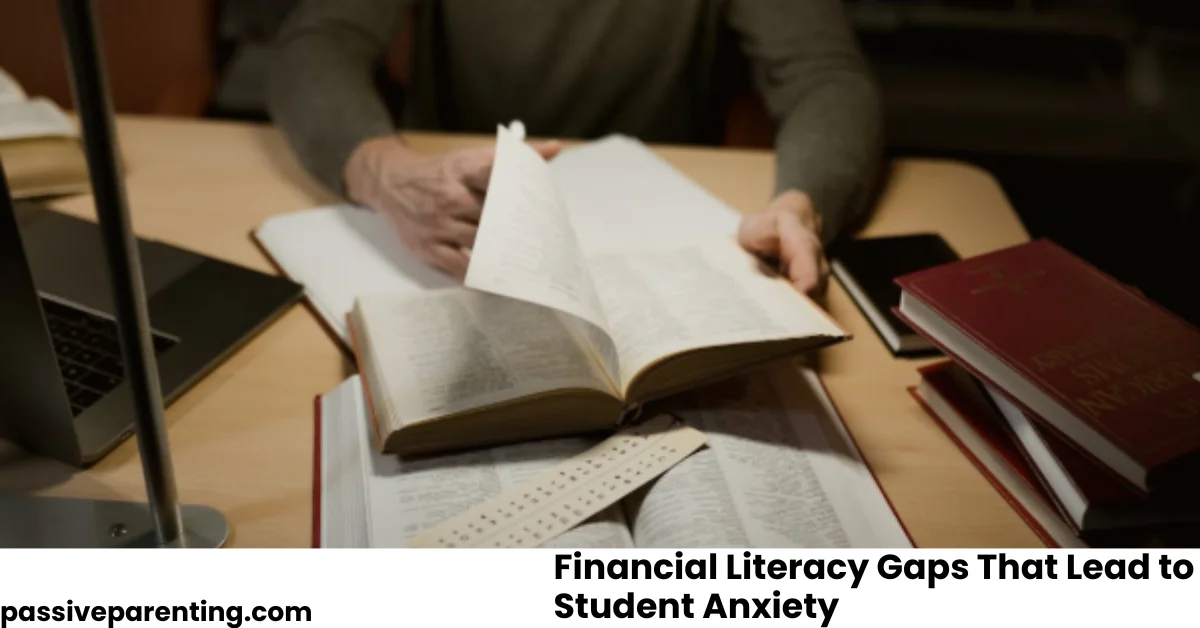College years bring new freedoms, but they also come with responsibilities that many students have never faced before. Managing tuition bills, balancing part-time work, and handling credit often feels overwhelming when financial literacy is limited. Without a clear understanding of how money works, everyday decisions turn into sources of worry, and that anxiety can affect both studies and overall well-being.
Students who know how to manage repayment plans, track expenses, and set practical goals are less likely to feel lost. Unfortunately, many young adults are missing these essential skills, which leaves them vulnerable to mistakes that build unnecessary stress.
Repayment Tools
Student loans are often the largest financial responsibility students carry, yet repayment strategies are rarely taught. Many borrowers are unaware of tools that can help them organize payments and see how choices today affect future obligations. This lack of awareness leaves them in the dark about what repayment will look like after graduation.
The SoFi student loan calculator is an example of a resource that can bring clarity. It gives students the ability to estimate payments, compare options, and prepare in advance. Without knowledge of tools like this, students may feel overwhelmed by numbers they don’t fully understand, leading to stress every time loan statements arrive.
Expense Tracking
Unrecorded spending quickly drains a budget. Students often swipe cards or use mobile payment apps for small purchases without realizing how much it adds up over a week. The result is confusion when bank balances dip lower than expected, leaving them unsure where the money went.
Developing the habit of tracking daily and weekly expenses changes this picture. Simple logs or budgeting apps show patterns that would otherwise go unnoticed.
Missed Payments
Late or missed payments are more than a minor inconvenience. Many students don’t realize that every skipped deadline has consequences that reach far into the future. Besides, such mistakes can harm credit scores, raise interest rates, and limit access to opportunities like renting apartments or financing cars.
Clear explanations of the long-term impact are often missing in student resources. Understanding that one late payment can stay on a credit report for years can shift how students view their obligations.
Loan Comparisons
Borrowing decisions usually happen quickly, especially when tuition deadlines approach. Students are often encouraged to sign loan agreements without understanding how different terms can shape their financial futures. A lack of comparison leaves them with higher interest rates or repayment schedules that strain their budgets later.
Introducing guidance on how to evaluate loan terms before signing is crucial. Interest rates, repayment timelines, and conditions tied to deferment all make a big difference.
Tax Basics
Part-time jobs, internships, and financial aid often come with tax responsibilities, yet many students don’t know what filing involves until it’s too late. Missing paperwork or misunderstanding how income affects tax brackets can lead to costly mistakes. The lack of preparation turns filing season into a source of stress rather than a routine task.
With basic tax knowledge, students can plan proactively and keep documents organized throughout the year. Understanding how refunds work and why taxes are withheld helps them feel prepared instead of surprised.
Counseling Access
Colleges and universities frequently provide access to financial counseling, but many students either don’t know these services exist or assume they’re only for emergencies. The result is missed opportunities for support at the very time when guidance is most needed.
When students connect with financial counselors, they gain personalized advice on budgeting, loans, and savings. Knowing that resources are available and designed for them eases anxiety by replacing uncertainty with professional guidance.
Emergency Funds
Unexpected costs are one of the fastest ways for students to feel financially unstable. A broken laptop, sudden travel need, or health-related bill can easily disrupt a tight budget. Without even a small cushion, these situations create immediate stress and force students to rely on credit cards or additional loans.
Starting an emergency fund, even with small contributions, provides reassurance. It may not cover every problem, but it softens the impact of unplanned expenses. Students who learn this habit early experience fewer disruptions, knowing they have something to fall back on when life throws challenges their way.
Habits and Well-Being
Money decisions don’t exist in a vacuum; they affect how students feel day to day. Poor spending habits or constant debt worries can weigh heavily on mental health. Many students don’t realize the link between their financial behavior and their overall well-being until the stress becomes overwhelming.
When students adopt healthier money habits, their confidence improves as well. Tracking progress, setting achievable goals, and practicing discipline build a sense of control.
Goal Setting
Many students drift through their college years without clear financial goals. They may focus only on getting through each semester, with no plan for what comes after graduation. This lack of direction can make money management feel chaotic and uncertain.
Setting short-term and long-term goals brings structure. Whether saving for a study abroad program, planning for loan repayment, or preparing for life after school, goals act as a guide.
Document Skills
Contracts and financial documents are part of student life, from loan agreements to housing leases. Unfortunately, many sign these documents without truly understanding the terms. This lack of knowledge can trap students in obligations that create stress later.
Developing the ability to read and interpret financial paperwork can prove worthwhile. When students know how to identify key details and ask the right questions, they avoid hidden fees and confusing terms.
Credit Reliance
Credit cards are often a student’s first exposure to borrowing, and misuse is common. Without understanding repayment cycles or the impact of carrying balances, students can quickly accumulate debt that feels unmanageable. This reliance on credit becomes a major source of anxiety when payments pile up.
Learning to treat credit as a tool rather than a lifeline changes the outlook. Paying on time, keeping balances low, and using credit strategically builds a positive record.
Financial literacy gaps leave students vulnerable to confusion, missteps, and unnecessary stress. Loan repayment, expense tracking, taxes, and credit management are not minor details, as they shape how students experience college and prepare for the years that follow. Equipping students with financial knowledge provides stability and helps them face responsibilities with confidence, build healthy habits, and plan for both the expected and the unexpected.




